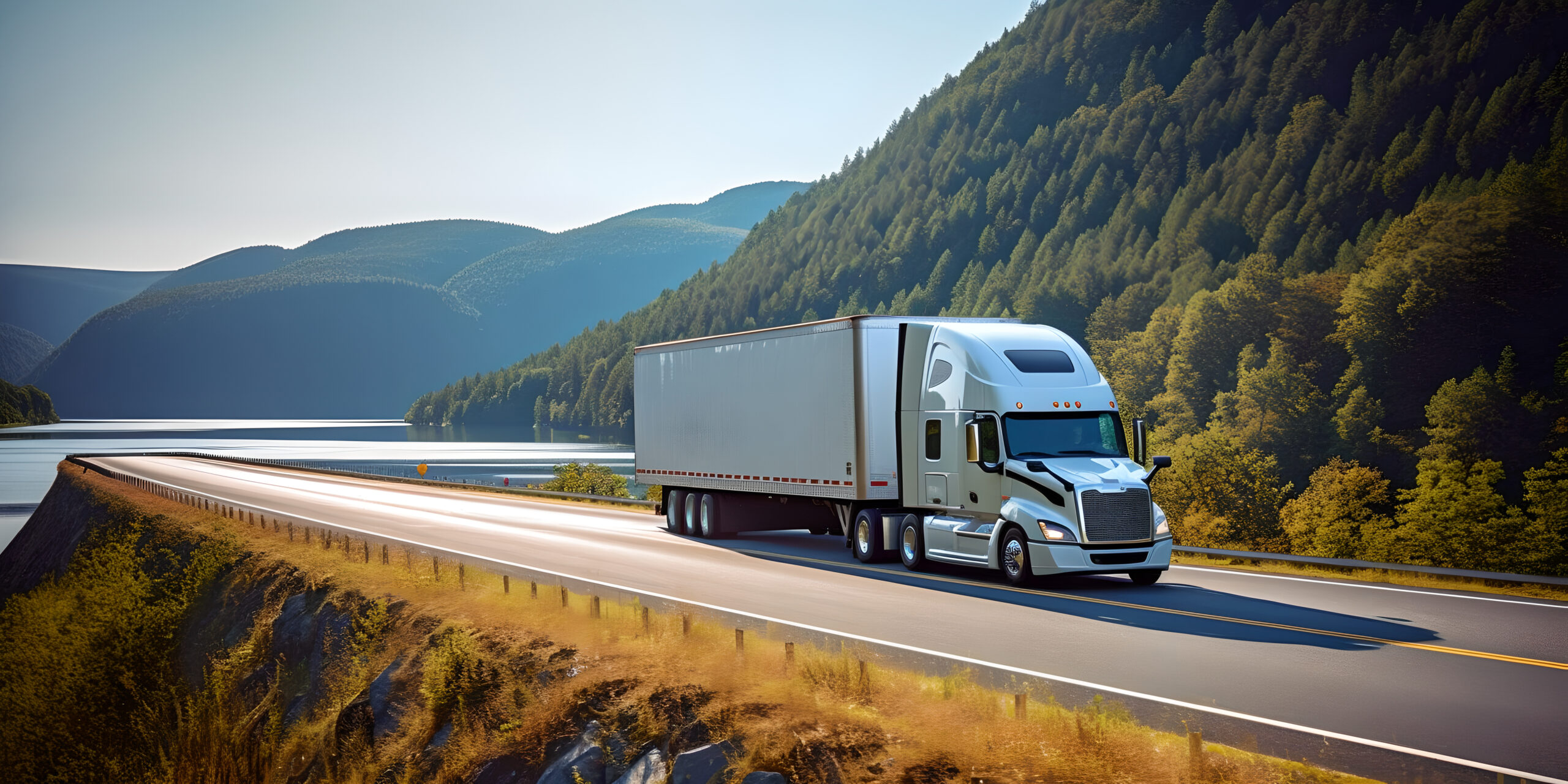

Interstate trucking companies form the vital arteries of trade and commerce in our nation. This article takes an in-depth look into the operational intricacies of these crucial entities, covering aspects like route planning, cross-state regulatory compliance, and logistics management. We’ll highlight how technology is revolutionizing operations and the role of an interstate trucking company in boosting economic growth.
Interstate trucking is an absolute necessity for our modern lives. A drive on the interstate highway reveals a myriad of trucks hauling loads of products that numerous individuals and organizations are expecting to receive. Whether groceries or goods to stock the shelves at stores or piece-parts to build gadgets for consumers, these heroes save us copious lengthy trips by bringing our treasures to us. An enormous amount of effort and planning goes into ensuring commodities make it from one place to another. Let’s explore the operational intricacies of interstate trucking and what an interstate trucking company needs to do.
An interstate trucking company can haul freight that crosses state or national borders. Note that it’s not simply defined by whether the truck crosses borders, but by whether the freight itself crosses borders. So, even if your truck doesn’t cross state lines in the process of delivering the load, it would be considered interstate trucking if the load originated in a different state. Intrastate trucking companies, on the other hand, haul freight within a single state and don’t cross state or national borders.
Whether crossing state lines or not determines which regulations are binding and subsequently, which type of Operating Authority is required. Loads carried within the boundaries of a single state are only subject to state-specific regulations, but once a load crosses state lines, federal regulations are applicable. An interstate trucking company must hold an Interstate Operating Authority which is issued by the Federal Motor Carrier Safety Administration (FMCSA). Conversely, an intrastate company must hold an Intrastate Operating Authority issued by a state agency, which permits them to legally operate within that state’s borders. In addition to obtaining Operating Authority, interstate trucking companies are subject to Unified Carrier Registration (UCR) and must pay annual fees determined by fleet size; these fees fund the operations of the FMCSA.
Intrastate trucking and interstate trucking have different insurance requirements. Intrastate truckers are subject to the minimum coverage requirement as dictated by their respective state and the requirements differ from state to state. The minimum coverage requirement for intrastate carriers tends to be much lower than that for interstate carriers. The FMCSA regulates intrastate carriers, dictating the minimum insurance coverage, which varies depending on the type of cargo being transported and the weight of the vehicle.
The most significant factor is whether the cargo is hazardous or non-hazardous; the minimum coverage for non-hazardous materials transported in a vehicle weighing less than 10,001 pounds is $300,000 while transporting hazardous materials requires $5 million in minimum coverage. Finally, interstate trucking companies must file a report on fuel taxes under the International Fuel Tax Agreement (IFTA).
While an intrastate trucking company will have fewer requirements and regulations than an interstate trucking company, electing to operate only within a single state will likely eliminate potential for higher-paying loads.
As with most operations that present potential accidents and injuries, regulations abound in the trucking industry.
From pre-trip inspections to end-of-the-day reports to annual inspections to loading procedures, the regulations that govern interstate trucking exist to promote and maintain safety. Since fatigue is the cause of numerous accidents, federal regulations specify driving intervals and prescribe the number of consecutive hours a driver can operate his or her truck. Additionally, testing for alcohol and controlled substances is mandatory for drivers with a vehicle over 26,000 pounds. With such heavy loads traveling such great distances, cargo tie-down is also regulated, and tie-downs must meet the specified performance criteria.
Interstate trucking companies maintain a complex operation. Managing the flow of goods from their point of origin to their destination necessitates attention to detail, organization, and disciplined implementation. This starts with fleet management, ensuring your fleet is being utilized to its full potential. The objective is to maximize the number of trucks on the road carrying loads for profit and minimize (or better yet eliminate) the number of trucks sitting idle. Just as idle trucks don’t add to the bottom line, half empty trucks are very inefficient and can erode profits that could otherwise be maximized with prudent load planning.
Additionally, it is critical to ensure that your fleet receives regular maintenance and that all trucks are safe to operate. Route planning is necessary to find the quickest and safest route for large semi-trucks. In addition to managing the trucks, an interstate trucking company must manage its drivers. Whether company drivers or contract drivers, this involves communication and tracking to make sure drivers are qualified, compliant with DOT rules, and adherent to the required hours and service.
We have achieved momentous heights in technological advancement and to some degree it certainly feels like we are living in the future. Today we carry around in our pocket one device that’s less than 5 cubic inches, which functions as a calculator, a calendar, an alarm clock, a map, and a flashlight. Not to mention, it’s essentially a supercomputer. Consider how the progress in mobile phone technology has changed the very fabric of our lives with the ability to respond to emails on the go, connect with old high school friends across state lines via social media and the multitude of apps that have been created to facilitate just about anything. Advances in technology have revolutionized nearly every industry and the trucking industry is no exception. As an interstate trucking company, utilizing technology leads to greater efficiency and safety.
That supercomputer in our pockets has led to more convenient and efficient ways to operate. The Internet of Things (IoT), a network of devices that connect and exchange data, is a game-changer for the trucking industry. Whether tracking loads to estimate arrival times or monitoring traffic and re-routing trucks to achieve on-time delivery, this technology can optimize supply chains. Cargo sensors installed in trailers can detect available space, which can be used to coordinate stops along a route to pick up additional loads, streamlining deliveries, minimizing fuel consumption, and maximizing efficiency.
Recent developments in autonomous vehicle tech have produced some impressive features, such as lane-assist technology, which warns drivers when they meander across lanes and in some cases will automatically correct the steering wheel so that the vehicle remains in its lane. Collision warning detects static objects in the vehicle’s path and issues an alert before impact and can even enact the brakes on the driver’s behalf to avoid impact. These can be helpful features for the safety of the driver (and his or her load), especially if driving for an interstate trucking company for extended periods and battling fatigue.
As an interstate trucking company, you likely have a large fleet of trucks constantly on the move. To maintain a profitable operation, there’s plenty to consider between tracking loads, managing routes, tracking drivers, satisfying customers, maintaining the fleet, staying up to date with and ensuring adherence to regulations and the plethora of administrative work.
For every truck in the fleet, you need to pay the HVUT (Heavy Vehicle Use Tax), which i2290 makes simple and fast. With i2290, you simply create an account, enter in some information about your trucks and your business, and then our software will automatically calculate your taxes for you. The entire process takes only a few minutes, and once you submit your return, you’ll receive a stamped Schedule 1 almost instantly.
Are you ready for a better way to pay the HVUT? Create an account with i2290 today!
Special note: This article is for general purposes, and is not intended to provide, and should not be relied on for tax, legal, investment, or accounting advice. The best way to ensure you’re properly filing and paying appropriate taxes is by following IRS regulations and consulting with a tax professional.
We're confident that your experience with INSTANT 2290 will be the best Form 2290 e-filing you've ever had. If for any reason you are not satisfied, just contact support for a full refund. No questions. No conditions. Create your account to get started!